In our daily skincare routines, we often focus on cleansing, moisturizing, and applying various products to improve the health and appearance of our skin. However, there are some crucial skin hygiene tips and habits which you can include in your healthy skincare routine - to avoid skin irritation, breakouts, and other skin concerns.
7 hygiene habits you're neglecting in your skincare routine
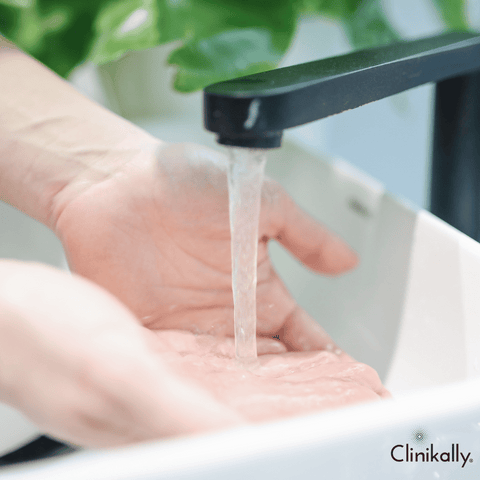
A thorough skincare routine entails more than just washing and moisturising. Here are seven skincare hygiene habits that people may occasionally overlook:
-
Not washing your hands before touching your face: Our hands come into contact with countless surfaces throughout the day, and they can easily transfer bacteria and other germs to our skin. Always wash your hands thoroughly with soap and warm water before touching your face to avoid introducing harmful microbes to your skin.
-
Not regularly cleaning your makeup brushes and sponges: Makeup brushes and sponges can harbor bacteria and other germs, which can be transferred to your skin each time you use them. Be sure to clean your brushes and sponges at least once a week using a gentle brush cleanser or soap and warm water.
-
Not sanitising your phone: Our phones are another surface that we come into contact with frequently, and they can also harbour bacteria and germs. Use a disinfectant wipe or spray to clean your phone regularly to prevent it from transferring bacteria to your skin.
-
Not washing your pillowcases and towels regularly: Pillowcases and towels can accumulate dirt, oil, and bacteria over time, so it's important to wash them regularly. Aim to wash your pillowcases at least once a week and your towels every three to four days.
-
Not changing your skincare products regularly: Skincare products can expire and lose their effectiveness over time, so it's important to check the expiration dates on your products and replace them as needed. This is especially important for products that come into contact with your eyes or mouth, such as eye cream and lip balm.
-
Not properly storing your skincare products: Proper storage is important for maintaining the effectiveness of your skincare products. Keep them out of direct sunlight and extreme temperatures, and be sure to close the lids tightly to prevent contamination.
-
Not removing your makeup before bed: Leaving makeup on overnight can clog skin pores and lead to breakouts, so it's important to remove it every night before bed. Use a gentle makeup remover and wash your face with a cleanser to remove all traces of makeup.
Incorporating these practices into your skincare routine will help improve overall skin health and prevent common problems like breakouts, irritation, and premature ageing.
#1 Increased risk of irritation or infection

When you apply skincare products to dirty or contaminated skin, you are more likely to develop irritation, redness, or even infections. This can be particularly problematic if you are using skincare products that contain active ingredients or natural oils, which can be more prone to bacterial growth.
#2 Reduced effectiveness of skincare products
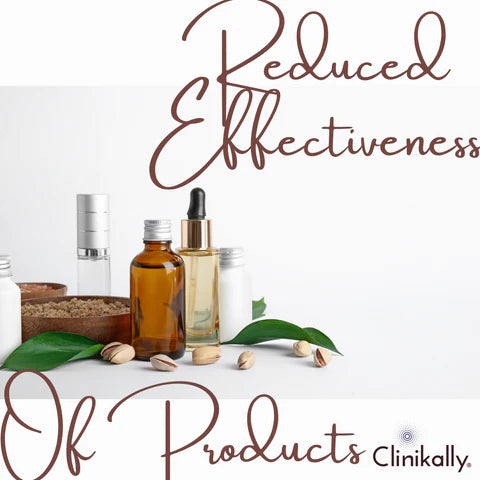
Skincare products are designed to work in specific ways, and when you use them incorrectly or in a contaminated environment, their effectiveness can be reduced. For example, if you are using skincare products that require a specific pH balance, and you apply them to dirty or contaminated skin, the pH balance can be disrupted, which can make the products less effective.
#3 Spoiled or contaminated skincare products
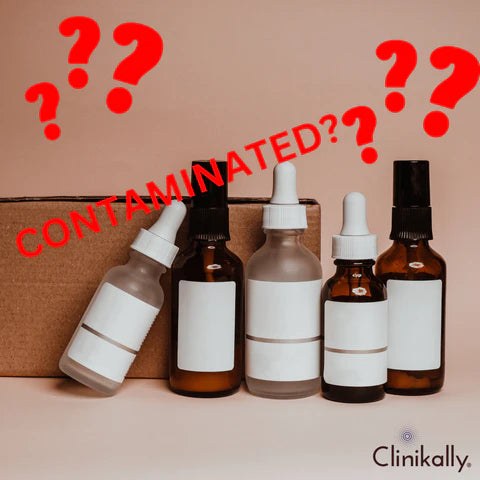
When skincare products are not stored or used properly, they can become contaminated or spoiled. This can make the products less effective, and in some cases, they can even cause irritation or infection if used on the skin. For example, if you use a skincare product that has been sitting in a warm, damp environment, the product can become contaminated with bacteria or mold, which can make it unsafe to use.
#4 Clogged pores and breakouts
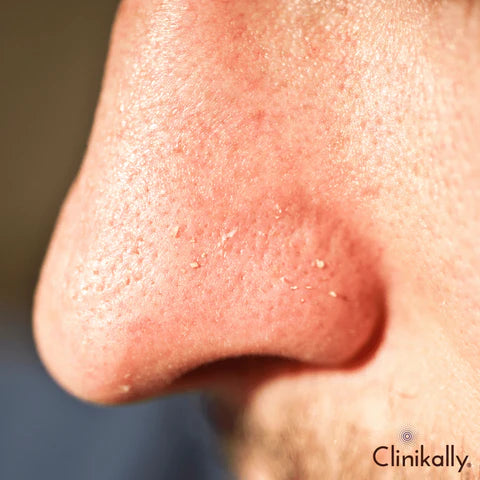
If you are using skincare products that are past their expiration date, or if you are applying them to dirty or contaminated skin, you are more likely to develop clogged pores and breakouts. This is because the old or contaminated products can trap dirt and bacteria in your pores, which can cause irritation, redness, and breakouts.
#5 Dry, flaky, or damaged skin
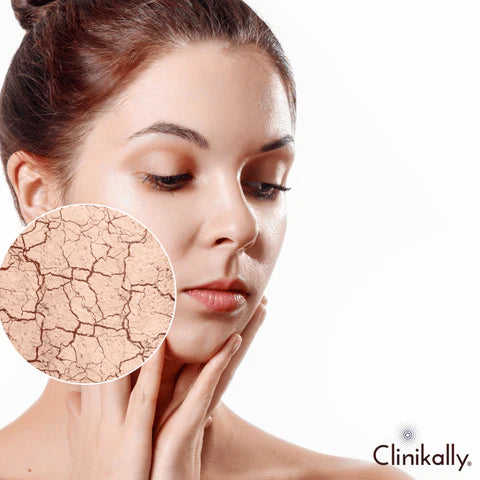
Neglecting hygiene in your skincare routine can also lead to dry, flaky, or damaged skin. This can be due to a number of factors, such as using skincare products that are past their expiration date, using products that are not suitable for your skin type, or using products that contain harsh ingredients that can strip your skin of its natural oils. It is always best practice to consult dermatologist before trying any new skin care product. At Clinikally, we provide online dermatologist consultation where you can book an appointment with doctor from the convenience of your home and get personalized treatment plan and recommendations.
#6 Premature aging or uneven skin tone
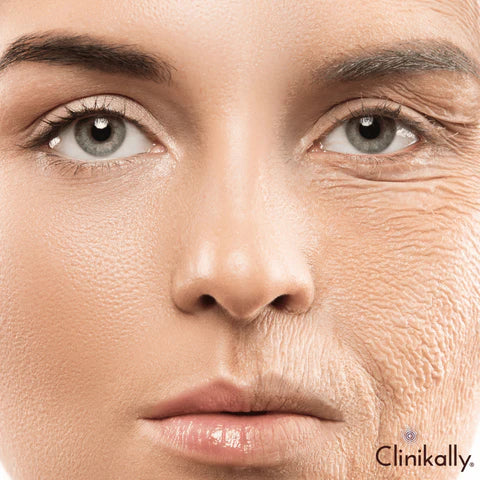
When you neglect hygiene in your skincare routine, you are more likely to develop premature aging or uneven skin tone. This can be due to a number of factors, such as using skincare products that are not suitable for your skin type, using products that are past their expiration date, or using products that contain harsh ingredients that can damage your skin over time.
#7 Allergic reactions or sensitivities
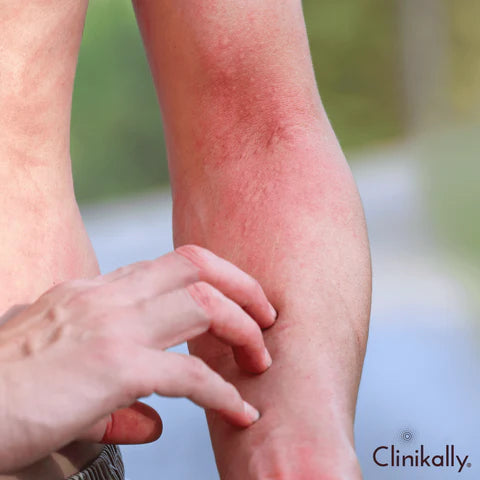
Finally, neglecting hygiene in your skincare routine can also lead to allergic reactions or sensitivities. This can be due to a number of factors, such as using skincare products that contain ingredients that you are allergic to, using products that are past their expiration date, or using products that are not suitable for your skin type. In some cases, these allergic reactions or sensitivities can be severe and require medical attention.
How does skin hygiene affect your skin health?
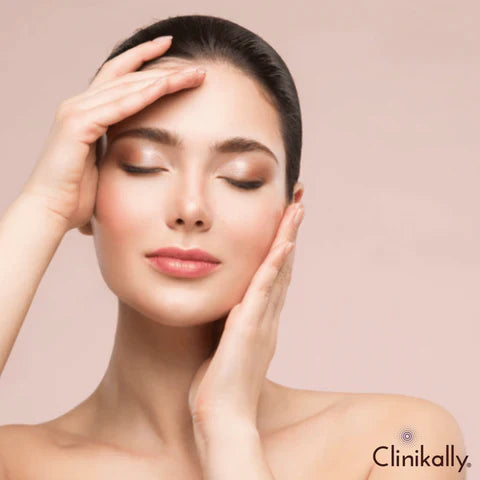
Skin hygiene is essential for maintaining skin health. Proper skin hygiene aids in the prevention of various skin problems, promotes a clear complexion, and contributes to overall well-being. Here are some examples of how skin hygiene affects skin health:
-
Removal of Dirt and Bacteria: Washing your skin regularly aids in the removal of dirt, sweat, and bacteria that accumulate on the skin's surface throughout the day. This can help to prevent clogged pores, acne, and skin infections.
-
Acne Prevention: Good skin hygiene, including regular cleansing, can help prevent acne by removing excess oil, dead skin cells, and impurities that contribute to the formation of pimples and blackheads.
-
pH Balance: The skin has a slightly acidic pH, which protects it from harmful microorganisms. Using harsh soaps or cleansers can upset this delicate balance, causing dryness, irritation, and an increased susceptibility to infections.
-
Skin Renewal: Exfoliating gently as part of a skincare routine removes dead skin cells, promoting the turnover of new, healthy skin cells. This can give you a more radiant complexion and a smoother complexion.
-
Infection Prevention: Handwashing and keeping the skin clean can help to prevent the spread of infections and skin diseases. It is especially important to practise good hygiene if you have cuts, wounds, or skin conditions that make you more susceptible to infections.
-
Moisture Retention: Using moisturisers and hydrating products can aid in the preservation of the skin's natural moisture balance. Well-hydrated skin is less prone to dryness, flakiness, and irritation.
-
Sun Protection: Using sunscreen is an essential part of good skin care. Sunscreen lowers the risk of sunburn, early ageing, and skin cancer by shielding the skin from damaging UV rays.
-
Reduced Irritation: Harsh chemicals, allergens, and environmental pollutants can irritate the skin. Using gentle, hypoallergenic products and practising good skin hygiene can help to reduce the risk of skin irritation and inflammation.
-
Support for Healing: Keeping wounds, cuts, or skin conditions clean and well-maintained promotes natural healing and reduces the risk of complications.
-
Anti-Aging Benefits: By maintaining skin elasticity and promoting collagen production, proper skincare can help to prevent premature ageing signs such as fine lines and wrinkles.
Maintaining proper skin cleanliness is critical for avoiding skin disorders, ensuring a healthy complexion, and encouraging overall skin health. It entails a combination of washing, moisturising, sun protection, and other procedures that vary according to individual skin types and needs.
The link between hygiene and acne
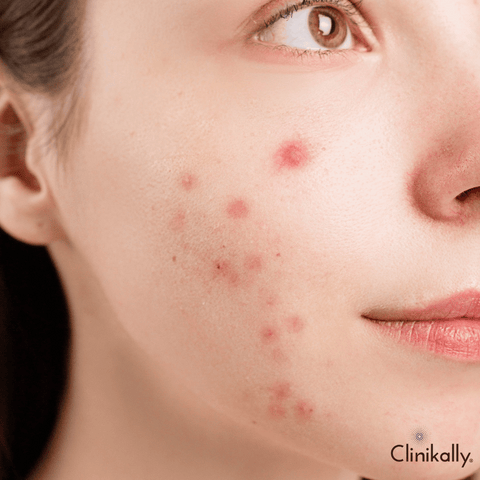
The relationship between hygiene and acne is complicated and involves several factors. While good hygiene is important for overall skin health, certain aspects of hygiene can influence the development and exacerbation of acne. Here are a few key points to consider:
-
Excessive Cleaning: While regular cleansing is necessary to remove excess oil, dirt, and dead skin cells, excessive washing can deplete the skin's natural oils. This may cause the skin to produce even more oil to compensate, potentially contributing to acne breakouts.
-
Cleansers: Harsh or abrasive cleansers can irritate the skin and upset its natural balance. Individuals with acne-prone skin should use gentle, non-comedogenic (non-pore-clogging) cleansers to help maintain a healthy skin barrier.
-
Ignoring to Cleanse After Exercise: Sweating during exercise can exacerbate acne by combining with oils and bacteria on the skin. After working out, it is critical to wash your skin to get rid of sweat and clear your pores.
-
Dirty Items Touching the Face: Hands, cellphones, and pillowcases that come into contact with the face can all harbour bacteria that can aggravate acne. Regularly cleaning these items and avoiding touching the face with dirty hands can help prevent acne.
-
Cosmetics and Makeup: Some cosmetics and makeup may include ingredients that block pores and exacerbate acne. It's important to choose non-comedogenic products and remove makeup thoroughly before bedtime.
-
Sharing Personal Items: Sharing razors, tissues, or other intimate items can spread bacteria and aggravate acne. It is best to use private items and not share them with other people.
-
Hydration: Sufficient hydration is crucial for the general health of the skin. Getting adequate water supports the skin's natural processes and helps to keep it hydrated. Dehydrated skin may produce more oil, which could result in acne.
-
Use of Sunscreen: Although sunscreen is essential for shielding the skin from damaging UV rays, some types of it may cause acne. Selecting a non-comedogenic sunscreen is crucial for people who are prone to acne.
Remember that acne is a complicated ailment that is influenced by many different things, such as hormone fluctuations, diet, stress, and heredity. While proper hygiene is important for acne prevention, it is not the only factor. Individuals suffering from persistent or severe acne should seek personalised advice and treatment options from a dermatologist.
Hygiene's role in managing skin sensitivity
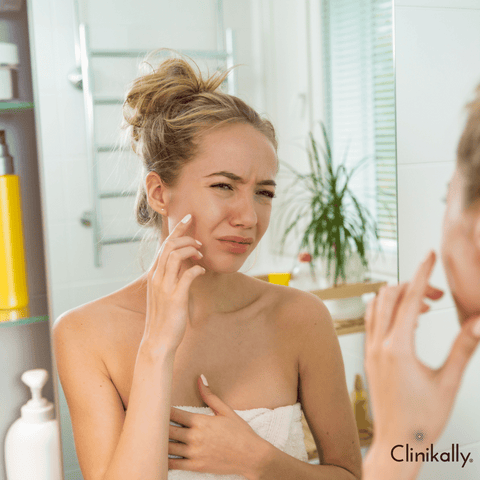
Good cleanliness measures are essential for managing skin sensitivity. People with sensitive skin are more likely to experience irritation, redness, and pain, and basic hygiene can help ease these symptoms. Here are some hygiene routines that can help with skin sensitivity:
-
Gentle Cleansing: Use a gentle, fragrance-free cleanser designed for sensitive skin. Harsh soaps and cleansers with added fragrances or harsh chemicals can deplete the skin's natural oils, irritating.
-
Avoid Using Hot Water: Hot water can be drying and irritating to sensitive skin. To help preserve the skin's natural moisture barrier, cleanse and bathe in lukewarm water.
-
Choose Hypoallergenic Products: Look for hypoallergenic skincare and personal care products that are free of common irritants. These products are designed to reduce the likelihood of allergic reactions and irritation.
-
Patch Testing: Perform a patch test on a small area before applying new skincare products to check for any adverse reactions. This can aid in identifying potential irritants before applying a product to the entire face or body.
-
Soft Towels and Linens: To reduce friction and the risk of irritation, use soft, cotton towels and bed linens. Fabric softeners and harsh laundry detergents with potentially irritating ingredients should be avoided.
-
Fragrance-Free Items: Fragrances are a common source of skin irritation, particularly in those with sensitive skin. To reduce the risk of irritation, choose fragrance-free or hypoallergenic products.
-
Moisturise regularly: Use a gentle, fragrance-free moisturiser to keep the skin hydrated. Moisturising aids in the maintenance of the skin's barrier, lowering the risk of dryness and irritation.
-
Sun Protection: Use a broad-spectrum sunscreen with a high SPF to protect sensitive skin from the sun. Sun exposure can aggravate sensitivity, causing redness and irritation.
-
Avoid Scrubs and Exfoliants: Avoid harsh exfoliants and scrubs, as they can irritate sensitive skin. If exfoliation is required, use a gentle exfoliant sparingly.
-
Reduce Stress: Stress can aggravate skin sensitivity. To promote overall skin health, use stress-reduction techniques such as meditation, deep breathing, and adequate sleep.
-
Stay Hydrated: Drinking plenty of water is essential for keeping your skin hydrated. Dehydrated skin is more prone to irritation and sensitivity.
It is important to remember that everyone's skin is different, and what works for one person might not work for the next. If you have persistent or severe skin sensitivity, you should see a dermatologist. They can make tailored recommendations and identify specific triggers for your sensitivity, assisting you in developing an effective skincare routine.
Improve skin health with healthy skin hygiene!

Overall, it is important to maintain good hygiene in your skincare routine to avoid these potential side effects and ensure that your skincare products are safe and effective.
Daily habits for better skin health
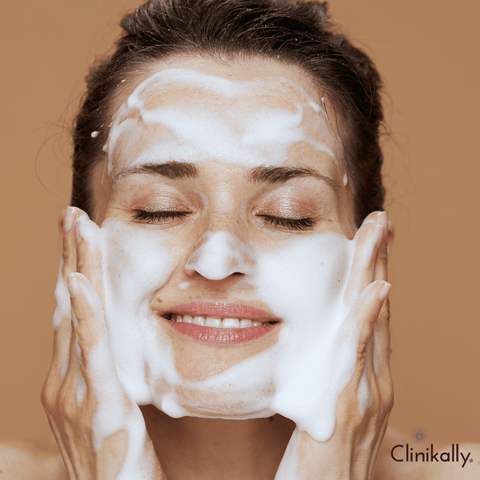
Adopting healthy daily practices is critical to preserving healthy skin. Consistent skincare techniques help to prevent skin problems and create a beautiful complexion. Here are some daily routines to improve your skin's health:
-
Cleaning: To get rid of impurities, oil, and dirt, wash your face twice a day in the morning and at night. Apply a mild, pH-balanced cleanser that is appropriate for your skin type.
-
Moisturising: To keep your skin hydrated, use a moisturiser daily. Select a product that is appropriate for your skin type, and if you have oily skin, choose a lightweight, non-comedogenic formula.
-
Sunscreen: Apply a broad-spectrum sunscreen with an SPF of at least 30 every morning, even on cloudy days. Sunscreen helps to prevent sun damage, premature ageing, and skin cancer.
-
Hydration: Drink plenty of water throughout the day to keep your skin hydrated from within. Hydration is important for overall skin health.
-
Balanced Diet: Eat a well-balanced diet rich in fruits, vegetables, lean proteins, and whole grains. Nutrient-dense foods contain vitamins and minerals that are essential for skin health.
-
Healthy Fats: Include sources of healthy fats in your diet, such as omega-3 fatty acids. These fats help to maintain skin elasticity and moisture.
-
Avoid smoking: Smoking hastens the ageing process and can contribute to wrinkles and dull skin. One of the most beneficial things you can do for your skin and overall health is to stop smoking.
-
Limit Alcohol: Excessive alcohol consumption can dehydrate the skin. If you drink alcohol, do so in moderation and drink plenty of water to compensate.
-
Adequate Sleep: Aim for 7-9 hours of quality sleep per night. Sleep is necessary for skin regeneration and repair.
-
Gentle Exfoliation: Exfoliate your skin 1-3 times per week, depending on your skin type. Exfoliation aids in the removal of dead skin cells, the unclogging of pores, and the promotion of skin renewal.
-
Eye Care: To moisturise the delicate skin around your eyes, use an eye cream or gel. This can help to minimise the appearance of fine lines and dark circles.
-
Clean Makeup Brushes: If you wear makeup, clean your brushes and applicators regularly to prevent bacteria buildup, which can contribute to breakouts.
-
Stress Management: Engage in stress-relieving activities such as meditation, yoga, or deep breathing. Chronic stress can hurt your skin.
-
Hands Off: Try not to touch your face throughout the day, as this can transfer bacteria and contribute to breakouts.
-
Consultations with a Dermatologist regularly: Make appointments with a dermatologist regularly for preventive care and to address any specific concerns.
Remember that everyone's skin needs are different, so tailor your skincare routine to your specific skin type and concerns. Consider consulting with a dermatologist for personalised advice if you have specific skin issues or questions.
Selecting the right products for skin hygiene
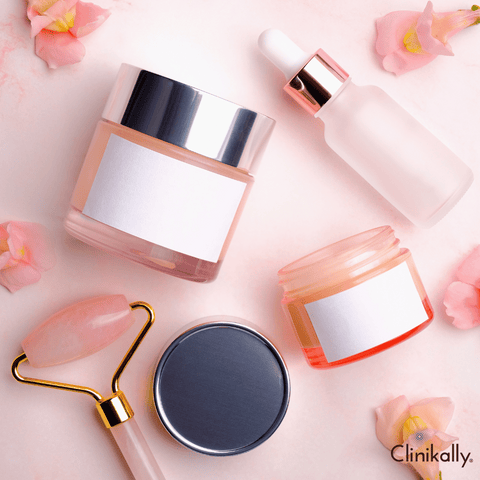
Choosing the right skin hygiene products is critical for maintaining healthy skin. The right products can address your specific skin type, concerns, and goals while avoiding ingredients that may irritate your skin or exacerbate existing issues. Here are some suggestions for selecting the best products:
-
Know Your Skin Type: Normal skin is balanced and neither too oily nor too dry. Oily skin is shiny and has enlarged pores. Dry skin is tight and flaky, and it may have fine lines. Combination skin has oily and dry patches.
-
Read Ingredient Labels: Look for products that contain fewer harsh chemicals, fragrances, and allergens. Avoid irritating ingredients such as alcohol, sulphates, and synthetic fragrances.
-
Choose a Gentle Cleanser: Choose a gentle, pH-balanced cleanser for all skin types. Avoid using harsh soaps, which can strip the skin of its natural oils.
-
Use a Suitable Moisturizer: Use a lightweight, non-comedogenic moisturiser even if you have oily skin. Dry skin may require a richer, more hydrating moisturiser.
-
Sunscreen is Non-Negotiable: Select a broad-spectrum sunscreen with an SPF of 30 or higher. Based on your skin type, choose a formulation (gel, cream, or lotion).
-
Consider Your Specific Concerns: If you have acne, look for products that are non-comedogenic and designed for acne-prone skin. Look for anti-aging creams that contain retinol, hyaluronic acid, and antioxidants.
-
Patch Test New Products: Perform a patch test on a small part of your skin before applying a new product to your full face to check for any unwanted effects.
-
Choose Hypoallergenic Products: If you have sensitive skin, choose hypoallergenic products that are designed to reduce the risk of allergic responses.
-
Personalise Your Routine: Make your skincare routine specific to your requirements and issues. Consider serums or therapies for specific benefits.
-
Consider the Season: Adapt your skincare routine to the changing seasons. For example, in the winter, you may require more hydration and in the summer, you may require more oil control.
-
Check Expiry Dates: Skincare products have a limited shelf life. Check expiration dates to ensure product efficacy and safety.
-
Be Consistent: Allow products time to work and stick to your routine. Introduce new products gradually to see how your skin responds.
-
Consult a Dermatologist: Consult a dermatologist for personalised advice if you have persistent skin concerns or are unsure about product selection.
Keep in mind that skincare does not come in one size fits all, and what works for one person may not work for another. Pay attention to how your skin reacts to various products and be open to making changes as needed to achieve optimal skin health.
















